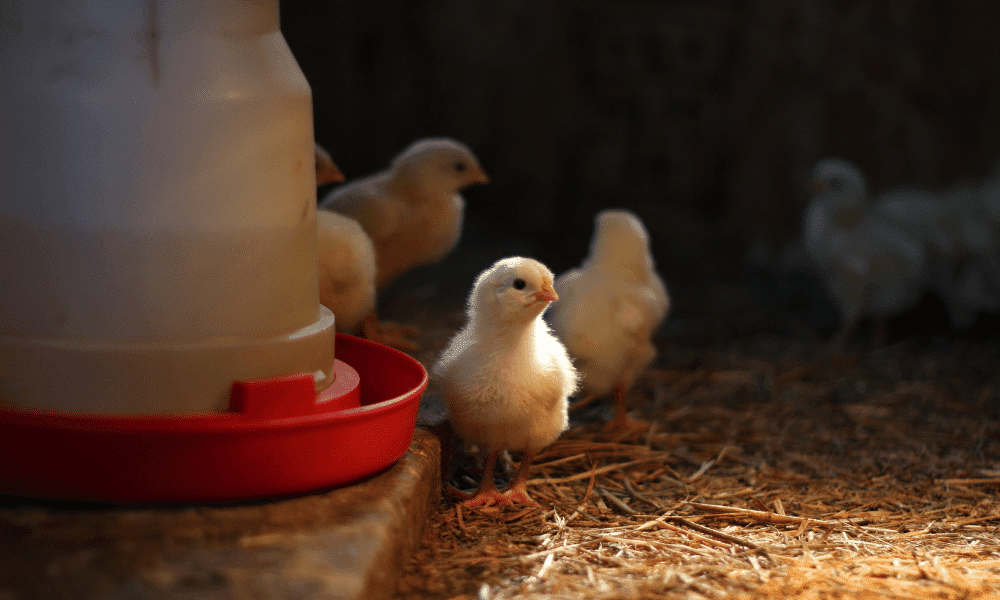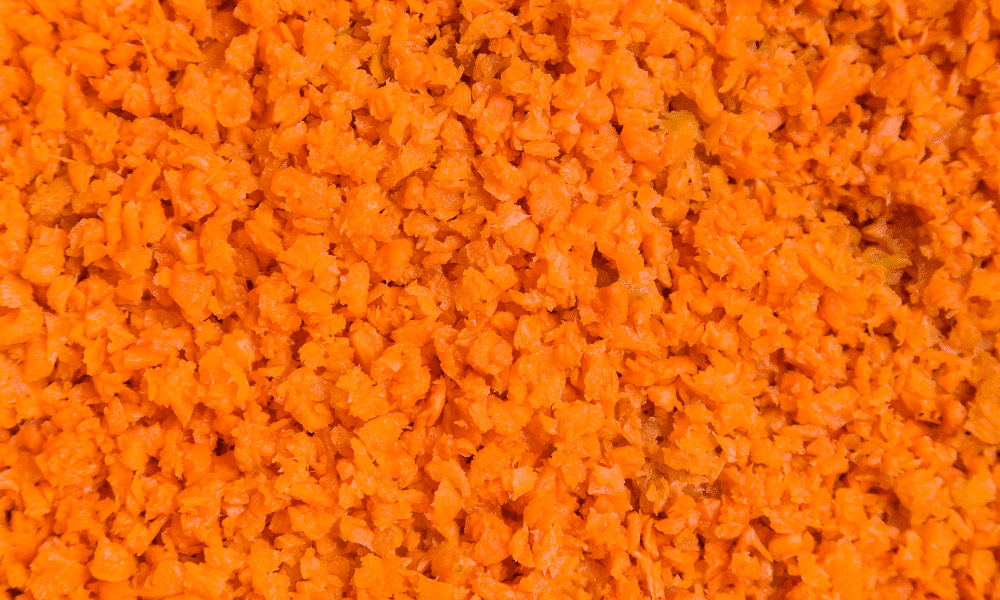Carrots are incredible vegetables, being beneficial for humans and a lot of farm animals too, from horses, cows, rabbits, and of course, our beloved chickens.
However, just because something is healthy for adult chickens to eat, doesn’t mean it can be fed to baby chicks. This is because the younger the chick, the more demanding their nutritional needs are.
Here we go through if baby chicks can eat carrots, what health benefits carrots offer them, and how you can safely feed carrot to your baby chicks.
Can Baby Chicks Eat Carrots?
Baby chicks go through very rapid developments in their growth parts of life, from the time they hatch to the time they shed all their baby feathers and become pullets, to when they lay their first eggs.
During the earlier stages of baby chicks’ development, their diet is very demanding, requiring a hefty 18-21% protein intake, as well as adequate calcium, fat, fiber, and carbohydrate.
For this reason, it’s recommended to ensure your baby chicks get the majority of their food from a chick starter feed which covers all of their nutritional requirements until they are at least 12 weeks old.
However, given the nutritional benefits, being rich in vitamins, minerals, and antioxidants, carrots are perfectly safe to feed to your baby chicks from 2-3 weeks old, so long as it’s in small amounts and is grated.
Because their beaks are undeveloped at this age, be sure to first cook the carrot to soften it, then grate it finely and offer it in small amounts as a supplement to their chick starter – not a replacement for it!
This way, your baby chicks will be able to have the benefits of carrots, without missing out on any vital dietary requirements from their chick starter.
Nutritional Benefit Of Carrots For Baby Chicks

Carrots aren’t packed with calories, which means that they won’t supply baby chicks with a lot of energy. However, they are rich in vitamins, minerals, and antioxidants. It’s essential that you only provide carrots as a treat or a supplement to their normal feed.
Here’s a list of the top nutritional compounds in carrots:
- Beta-Carotene (Provitamin A)
- Pyridoxine (Vitamin B6)
- Biotin (Vitamin B7)
- Phylloquinone ( Vitamin K)
- Glutathione (antioxidant)
- Lutein (antioxidant)
- Anthocyanins (antioxidants)
- Polyacetylenes (antitumor compounds)
- Potassium
Carrots also have a relatively high water content, making them great for keeping young chicks hydrated too.
Beta-Carotene For Baby Chicks
For baby chicks, vitamin A aids growth through stimulating cell proliferation. Adequate amounts of vitamin A can help the chicks grow healthy, strong bones.
It’s also related to cardiovascular health, endocrine function, immunity, and more!
Beta-carotene is a provitamin (precursor to vitamin A production.) Meanwhile, glutathione is a natural antioxidant that helps liver function and detoxification reactions.
The fact that carrot has both beta-carotene and glutathione makes it excellent for liver health and helps your baby chicks stay healthy during their rapid development.
Dietary Fiber For Baby Chicks
In addition to vitamins, carrots are also rich in dietary fibers. Pectin is a type of soluble fiber that can regulate blood glucose levels.
Another type of dietary fiber is insoluble fibers like cellulose and lignin. These don’t add much nutritional value. However, they can reduce constipation and maintain regular bowel movements.
How To Feed Baby Chicks Carrot

So baby chickens from age 2-3 weeks can safely eat carrots, which is great as it gives them a bit of variety from their normal chick starter.
So long as their main consumption of food is still coming from the chick starter you can supplement it with small portions of grated carrot.
To feed your baby chicks carrot you can:
- Partially boil or steam a carrot (steaming is better as it retains more nutrients than boiling).
- Finely grate slithers of carrot and then chop them up into very fine, small pieces.
- Offer your baby chicks a small handful of carrot after they’ve had some chick starter first to ensure they don’t fill up on carrot – recalling that carrot isn’t high in energy only in nutrients.
Once your chicks are around 3-4 months old you can begin feeding them raw carrot, and their beaks will be strong enough to handle small cubes rather than finely grated slithers. At this age, your baby chicks can begin eating other foods and table scraps too.
From 3-6 weeks old baby chicks can also eat a small amount of banana, or even rolled oats too!
Wrapping Up
So, if you want to treat your baby chicks to some diversity in what they are eating then carrots are the perfect supplement.
Just remember, it’s all about balance, so ensure your chicks are eating the majority of their food intake from chick starters, but you can supplement it with healthy, soft foods like a partially cooked grated carrot.
One thing to always keep in mind is, the younger the chick is, the more strict its diet should be, as these are the most vital points of the chick’s development.
Because their diet is important to baby chicks, feed them plenty! Remember: you can’t overfeed baby chicks!
